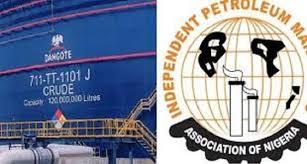The Independent Petroleum Marketers Association of Nigeria (IPMAN), Rivers State chapter, has expressed support for the planned direct distribution of Premium Motor Spirit (PMS) by Dangote Petroleum Refinery, describing it as a strategic move to overcome persistent limitations in Nigeria’s downstream sector.
Chairman of IPMAN in Rivers, Mr Tekena Ikpaki, made the remarks on Wednesday in Port Harcourt while speaking with correspondents.
He said the initiative, which includes the deployment of 4,000 Compressed Natural Gas (CNG)-powered trucks, would streamline fuel distribution nationwide, reduce logistics costs, and help stabilise market prices.
According to Ikpaki, the new PMS supply model, expected to begin on 15 August, will address issues such as inconsistent product availability, high transport expenses, and infrastructural challenges that have long plagued the downstream sector.
“We believe that such a multi-source supply model is essential to building a robust, competitive, and fair petroleum distribution ecosystem. More supply options mean greater flexibility for marketers, better pricing mechanisms, and, ultimately, more stability for Nigerian consumers at the pump,” he said.
Ikpaki, however, stressed the need for continuous regulatory oversight to ensure a level playing field for all marketers, regardless of their size.
He noted that the proposed distribution programme reflects effective public-private partnership and responsible industrial leadership.
Also speaking, Mr Chijioke Odimbu, a retiree of the Shell Petroleum Development Corporation (SPDC), praised the plan, saying it would ease distribution bottlenecks across the country and reduce petrol prices by cutting transport costs.
However, he advised that fuel production must match distribution capacity. “Even when you have the 4,000 trucks and you don’t have enough PMS to distribute, the trucks will still be useless,” he said.
Similarly, Mr Charles Ndudi, a commercial bus driver in Port Harcourt, said the initiative could lead to lower pump prices, thereby reducing the cost of transportation and easing the financial burden on citizens.
Mrs Imelda James, a trader, welcomed the development, expressing hope that direct supply would lower fuel costs and, in turn, positively impact food prices and general living expenses.
(NAN)


